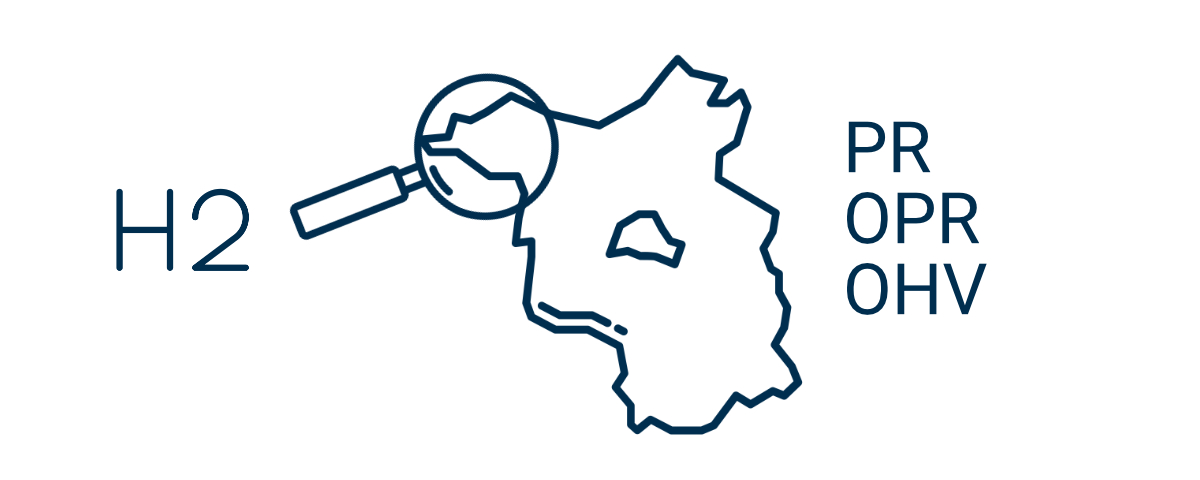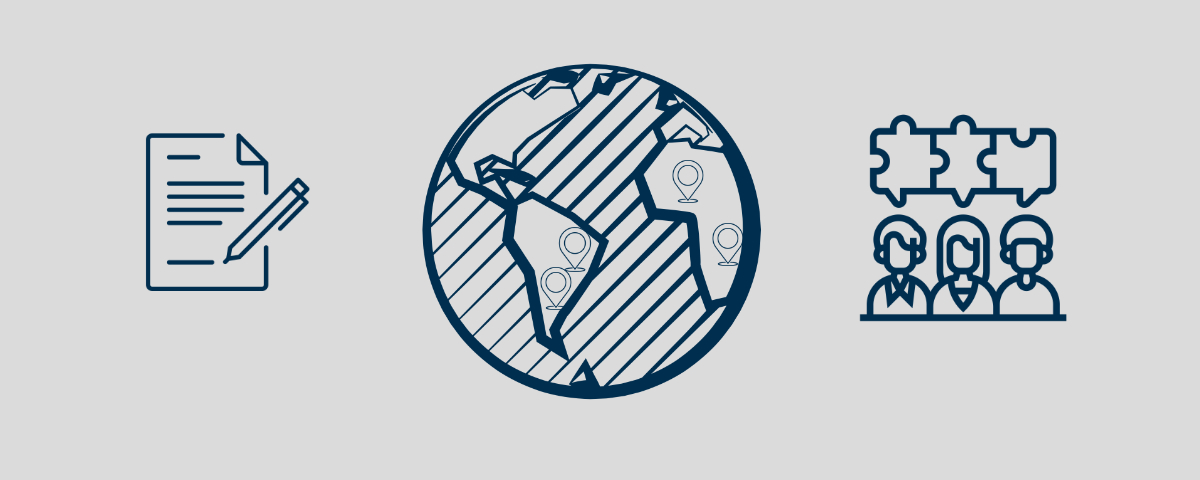
23.06. | Presentation Potential Study Hydrogen Economy Prignitz-Oberhavel
23. June 2022Data harmonisation for energy system analysis – Example of multi-model experiments (Gardian et al. 2022)
1. July 2022Science Cooperation with the Global South: RLI supports criticism of BMBF, DFG and DAAD

30th June 2022 | 70 scientists from various German institutions jointly criticize the practices and structures of German research funding. The focus is on the negative consequences for scientific cooperation with the Global South. The Reiner Lemoine Institute joins the criticism of the alliance. The bureaucratic effort is disproportionately high, legal requirements hinder cooperations and there is little room for innovative ideas. The alliance of researchers addressed its appeal in an open letter to the German Federal Ministry of Education and Research (BMBF), the German Research Foundation (DFG) and the German Academic Exchange Service (DAAD) on April 27. The RLI names further points that can improve scientific cooperation with partners in Africa, Asia, Latin America and the Middle East.
The main problem identified by the alliance is the overregulation of German research funding abroad and the unequal treatment of researchers in the Global South compared to European or North American scientists. They therefore call for a common basis of trust between funding and research institutions as a prerequisite for genuine cooperation, more flexible research formats and fewer bureaucratic constraints.
Recommendations of the RLI
Katrin Lammers is a researcher in the RLI research unit Off-Grid Systems. Through her work, she has already gained diverse experience with science cooperation in the Global South and represents the Critical Development Cooperation (CDC) group at RLI. This group is concerned with the critical reflection of development cooperation and postcolonial power structures in science. Katrin summarizes the three most important RLI recommendations in this context:
- More funding also for project proposal development: The consequences of globalization and the effects of climate change need to be researched on a global scale through international cooperation. This fundamentally requires more funding than in the past – in the federal budget and also in transnational funding instruments. This also includes providing more funds for the initiation and joint development of projects. This is the only way to develop applications in international consortia in a participatory and cooperative manner and to build sustainable partnerships based on trust.
Why? The participatory development of project proposals is lengthy and time-consuming. It is difficult to manage in the day-to-day business of the implementing organizations. It should therefore become standard practice to precede a research project with the Global South with a definition phase or definition project, the implementation of which is funded too. This also avoids the power imbalance that unequal participation right at the beginning can entail. - Direct funding: There needs to be a possibility for direct funding to research institutions and researchers in the Global South. This promotes an implementation of projects on an equal footing.
Why? The distribution of funds only through German institutions can lead to an unequal balance of power. Partners in the Global South often subordinate themselves in project development and are inhibited from contributing their own ideas. This can cause mistrust and lead to unnecessarily high bureaucracy on both sides.Funds are also used inefficiently, as project coordination by German organizations tends to be expensive and unnecessarily increases project budgets.Another problem is that research institutions that do not receive 100 percent funding must contribute their own share when they subcontract amounts from international partner organizations. - English as an equal working language: In international projects, applications, reporting and evaluations should also be possible in English in order to create trust and transparency.
Why? Project applications and reports often have to be written in German. This requires a great leap of faith on the part of partners in the Global South. They have to rely on German research institutions to reflect accurately the contributions and work of all project participants. This creates dependencies and intransparency and does not contribute to projects on an equal footing.Particularly annoying: when documents have to be submitted twice or three times and written in several languages. This is unnecessary effort. English should be specified as the language for all documents and should be processed in English by German project sponsors and funding organizations. In addition, this will ensure that researchers from all over the world can be employed in Germany to work on research projects.
Read the complete open letter here. (only in German)
Contact:
Katrin Lammers, researcher in the RLI unit Off-Grid Systems, and RLI Managing Director Kathrin Goldammer are available to answer questions on the topic.




